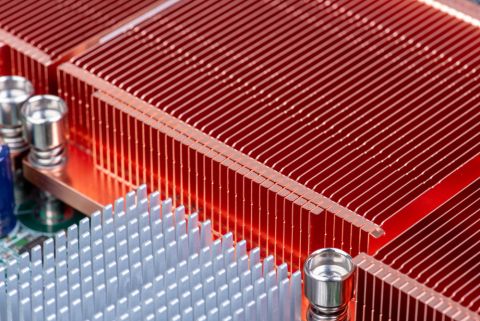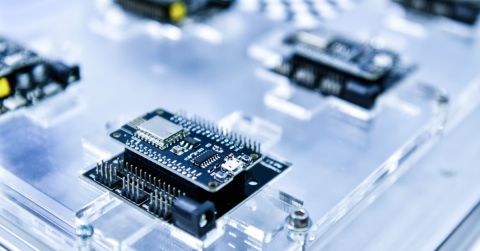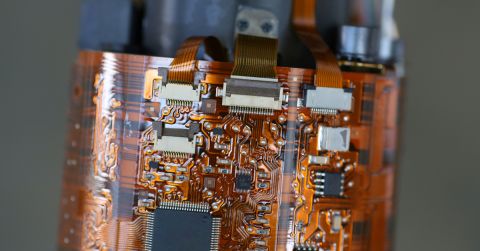Interview with Josh Sharpe, Co-Founder of XScomponents.com
Are you sitting on an inventory of components you can’t return to the distributor? Have you tried to sell parts with no luck and were forced to write them off and toss the unused parts in a landfill? Imagine if there was a marketplace created specifically for sellers needing to off-load excess parts they can’t use and buyers desperate to find those same parts. That’s exactly what we’ll be discussing with Josh Sharpe, co-founder of XScomponents.com, an online peer-to-peer marketplace where CMs and OEMs can list their new excess electronic components at a per-unit price at no cost. So let’s jump in, shall we?
Josh, why don’t you tell us more about yourself and why you created XScomponents:
Sure. Well, I’ve been doing engineering management for several years now. Different companies big and small. During my last engineering management job at a small automotive components company, we had several projects going, both internal and external projects for customers. What I started to see was that as projects evolved sometimes they got canceled. I started seeing more and more parts getting abandoned on the shelves in the warehouse and no real way to get rid of them. So we were tasked with recouping some of our investment in these parts that were no longer on a project. Long story short, I went out and tried to sell parts through different venues, like eBay and brokers, and there was just no good way of doing this.
And by the way, this was a couple of years ago, around when the pandemic was starting. So I never really did find any good ways of getting rid of these perfectly good electronic components—parts that had never been opened just sitting on the shelf. Thousands of dollars of brand new stuff. So then I got to talking to our other co-founder, who had a career in electronic component sales. He knew the other side of the situation as a distributor—that new components often come with a no-return policy.

So you really are stuck with these parts.
Oh, yeah. Most of the big distributors, I think they give you 30 days for you to send parts back for a refund. But after that, you’re stuck with the parts. So I thought we should make a marketplace where CMs and OEMs can easily get their parts back into the market, it's easy for anybody to buy from and it's transparent, unlike brokerage situations where you never really know how much your stuff is sold for. With brokers, you might get pennies on the dollar for some of your parts.
So you created XScomponents to be a reseller?
That's right. We created XS for buyers to access components. We also decided that we wanted to call it a marketplace. The term “broker” is something we want to avoid because we're just facilitating a transaction between an established contract manufacturer or OEM with someone who wants to buy those parts. What we're trying to do is build something customer-centric, like a Mercari or eBay, specifically for electronic components.
So XS itself doesn’t have any inventory. We don't have a warehouse. All of our sellers already have warehouses and they drop ship to the buyer. As we approve a seller, we do a background check to make sure they're a legit company.
Do you maintain any records of their inventory?
Yes. Sellers can do one of two things. They can either just send us a list of parts they have for sale—and usually, that’s just a spreadsheet with quantities, part numbers, some date codes, and maybe a price that they are looking to get or what they'd like to recoup for the part. Then we'll go ahead and post those to our Marketplace website. The other way is for us to make them an account that they can use to describe parts on a more granular level and do the posting themselves.
Could you walk us through what a typical transaction looks like?
So think of a transaction like any other website where someone can come along, search for the parts, place an order, and pay for it with a credit card or purchase order. We'll receive that payment, and then we'll tell the seller that the payment went through and to go ahead and ship the parts.
After that, we give the buyer five days to approve the parts. That policy is designed to deal with any uncertainty regarding counterfeit parts and to make sure the buyer gets exactly what they want. We then pay the seller with a wire transfer, ACH, or send them a check. So it’s really straightforward and simple.
But this is important: Once the parts are posted to the marketplace, all those parts are listed on Octopart with pricing and minimum order quantities. And a lot of times, we'll have the only quantity in the world, which is awesome. So that's what drives a lot of buyers to us is just having those parts listed on Octopart. Having visibility right there is pretty key. Other companies that offer listings don't do as well as Octopart.
Did the supply chain crisis have anything to do with you guys coming up with this idea?
You know, I'll say it was right around the same time the crisis erupted. I know that we were planning this Marketplace even before then. I remember at my job a couple of projects got canceled for various reasons. We’d already bought a bunch of parts. So we were kind of looking to get rid of those, and that was before the shortages were really hitting hard. So I guess “lucky” is probably not the right term, but we were definitely in the right place at the right time.
So you would say that your business really has thrived during the crisis period because of companies desperate to source parts.
Yes, I think so. There are a lot of manufacturers out there that bought too many parts and realized later that they didn’t need them. So they have all these parts that they now have to do something with. And so, instead of them working with some brokers who’d offer them pennies on the dollar or just letting them sit on the shelves, we're offering a better deal. And at the same time, there are still people out there who need the parts these manufacturers are trying to get rid of, so we’re helping connect buyers with sellers. It's a win-win all around.
Do you think your business might have an impact on reducing electronic waste?
That's a great question. I'm sort of a tree hugger by nature, and reducing waste is important to me for many reasons. When I started this project, I was talking to some other folks. I started realizing what happens when a company buys too much inventory, and the parts sit on the shelf for years. Accountants come in one day and say, “Okay, we have to write this stuff off,” and it gets chucked directly into the dumpster. Valuable resources that go directly into a landfill. Unfortunately, tons of stuff just gets thrown away. So that’s one of the reasons we wanted to build this Marketplace: to help reduce this kind of waste.

So what happens to inventory that you don't sell?
With contract manufacturers, they're going to have a warehouse of parts that they are trying to get rid of. And if they can't sell through our Marketplace, it's kind of up to them what they do with it. One thing that can be done to deal with that specifically is lowering the sale price. We also created this new offer feature where a buyer can come along and make an offer for parts that the seller can either accept or reject. It's definitely better than throwing the parts in the garbage.
Great. Last question. A lot of people, including those who are just starting out their engineering careers, are considering getting into electronics. What sort of advice would you give them?
Just start building stuff. There are so many resources out there. I'm just amazed. I've got two young kids. Walking around Target or whatever, it’s amazing the electronic kits nowadays that are available to start learning. Lego Mindstorms, all these amazing toys, tools, and development kits. I mean, it's absolutely amazing. And then they need to start designing stuff. So I guess that's my advice: just start researching and trying to do it. Failing, iterating, and learning.
And what advice would you give to parents who are wanting to kind of foster that curiosity?
Just let them start creating. Let them be okay with the process of building something. It might not work the way they want it to right away, but it's the journey and not the destination that really counts. It's learning that it's okay to fail because you learn more from the setbacks. So I guess my advice is to foster that learning environment and focus on the process and the progress.
Thank you, Josh, for joining us!
Thank you! It was a pleasure!










 Back
Back